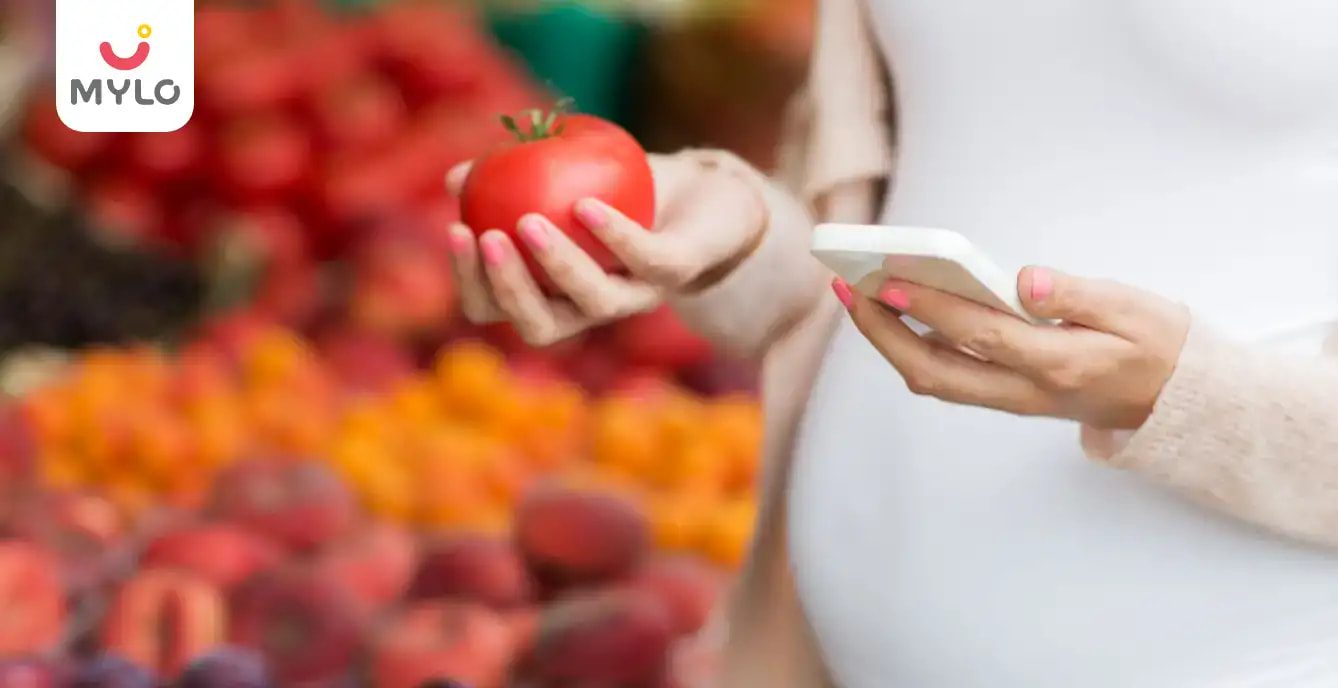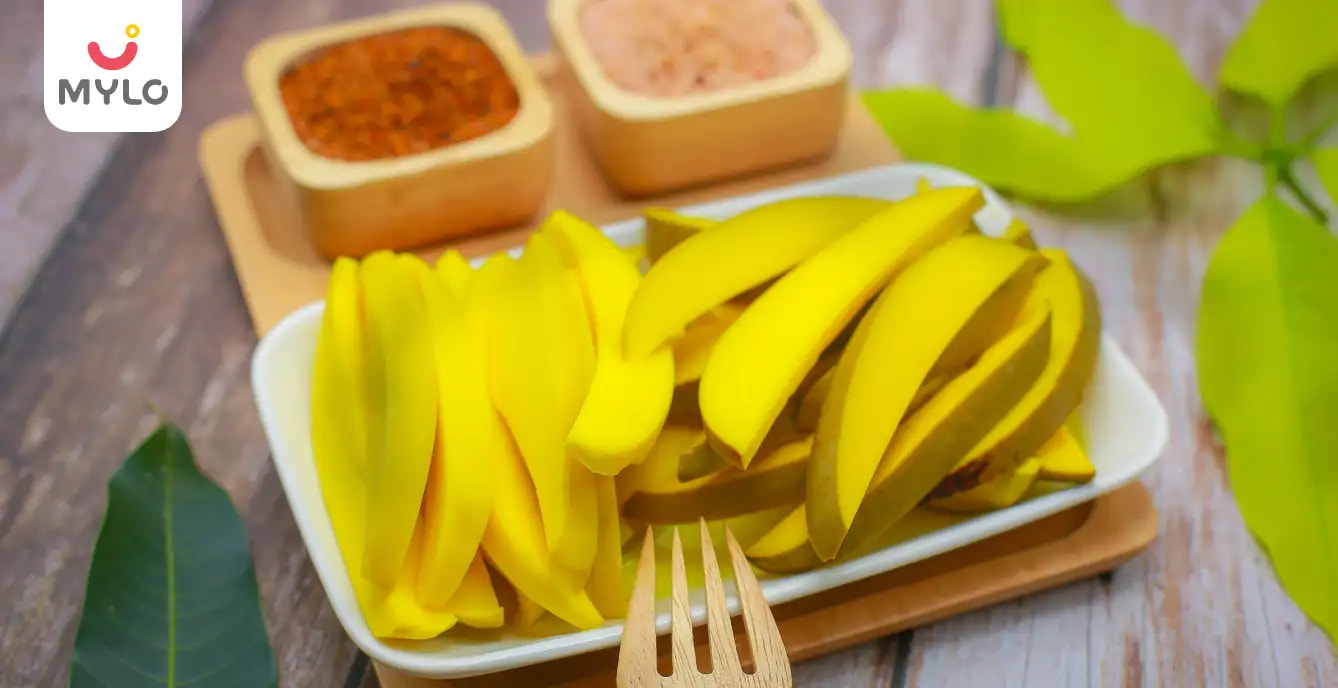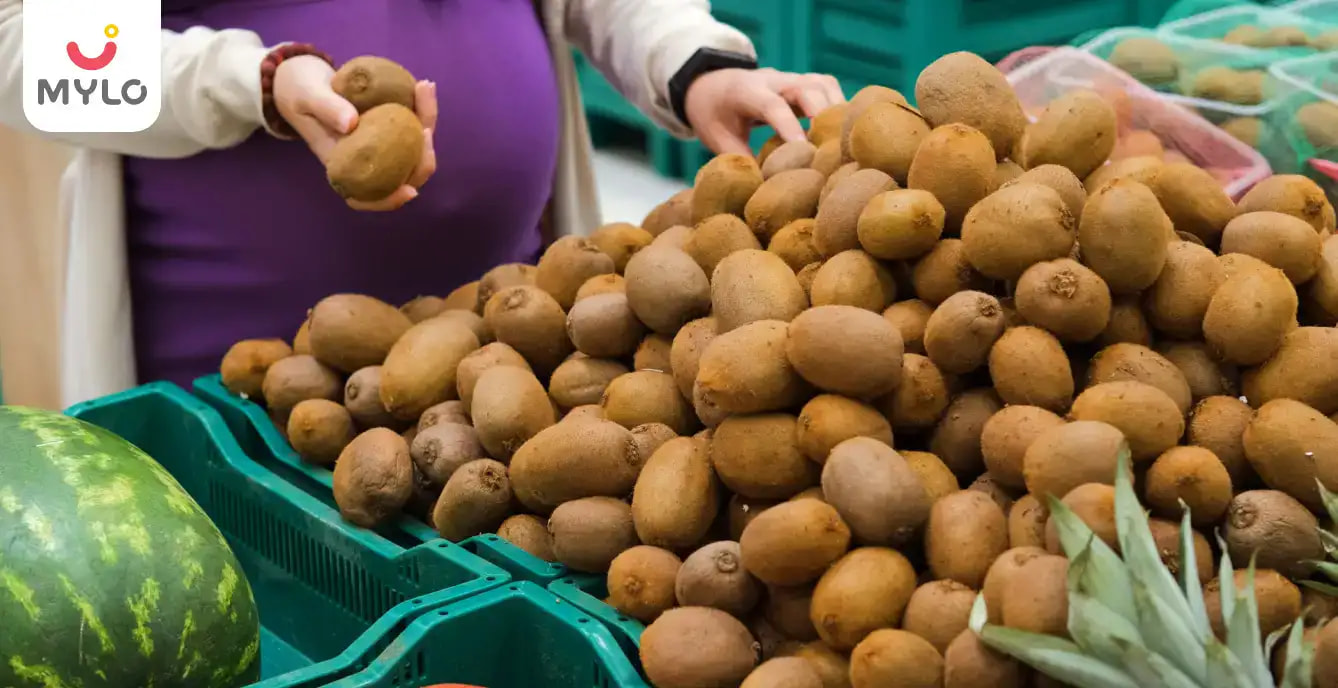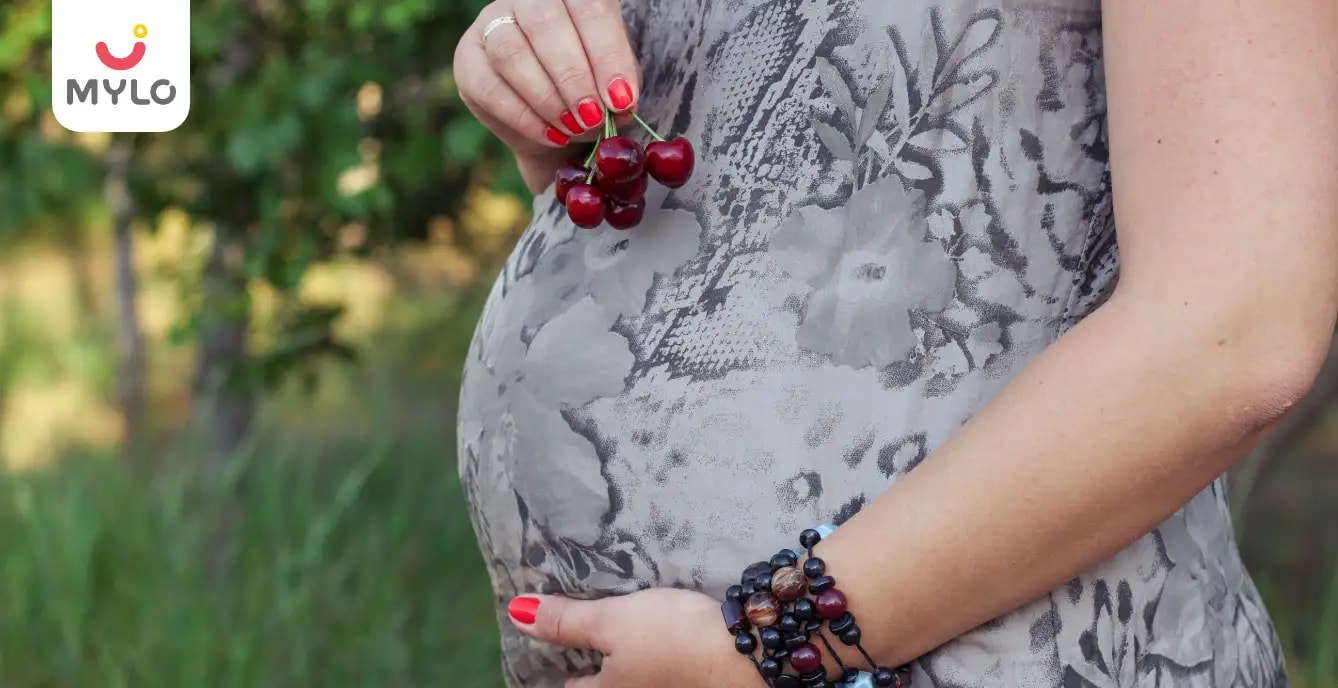Home

Pregnancy Best Foods

Tomato During Pregnancy: Benefits & Risks
In this Article

Pregnancy Best Foods
Tomato During Pregnancy: Benefits & Risks
Updated on 3 November 2023


Medically Reviewed by
Savita
Diabetes, Weight Loss, Thyroid, PCOS - Masters in Food & Nutrition
View Profile

Tomatoes are a staple in many households, but for pregnant women, it's important to know whether they are safe to consume and what benefits they offer. In this article, we will explore the benefits and risks of tomato during pregnancy, and provide tips on how to safely incorporate them into your diet. So, if you're a soon-to-be mom wondering if tomato in pregnancy is safe for you and your growing baby, read on to learn more.
Is it safe to consume tomatoes during pregnancy?
Tomatoes are safe to consume during pregnancy, as long as they are consumed in moderate amounts. Pregnant women and their unborn babies can benefit from the vitamins A, C, folate, lycopene, and iron in it. Vitamin C can also improve the absorption of iron which pregnant women need.
However, excessive consumption of tomatoes can lead to heartburn and digestive problems. To choose the right tomatoes, look for bright red, vine-ripened varieties with no bruises, blemishes, or black spots, and avoid consuming overripe tomatoes.
Consuming a medium-sized tomato can provide around 40% of the recommended daily allowance (RDA) of vitamin C and 20% RDA of vitamin A, making it a nutritious choice for pregnant women. Additionally, tomatoes contain essential nutrients like vitamin K, potassium, iron, and calcium, which play a crucial role in supporting the healthy development of the fetus. It is important to include a variety of fruits and vegetables rather than relying on only one for optimum nutrition.
Tomato's nutritional value
Following is the list of nutrients in a small, 100 gm raw tomato:
- Calories: 18.
- Water: 95%.
- Protein: 0.9 gm.
- Carbs: 3.9 gm.
- Sugar: 2.6 gm.
- Fiber: 1.2 gm.
- Fat: 0.2 gm.
Benefits of tomatoes during pregnancy
Easting tomato during pregnancy can provide pregnant women several health benefits such as:
1. Improves immunity
Approximately 40% of daily vitamin C is available in a single medium-sized tomato. Daily intake of vitamin C can help boost the immunity of pregnant women and reduce the risk of infections during pregnancy.
2. Promotes digestion
Tomatoes are great for digestive health because of their high fiber content. Fiber encourages smooth bowel movements during digestion (peristalsis), and increases the secretion of digestive enzymes.
3. Keeps the heart healthy
Pre-eclampsia, or high blood pressure, can be a high risk during pregnancy; however, regularly eating tomatoes can lower this risk. Tomatoes contain potassium, which increases circulation and eases cardiovascular strain.
4. Great source of folate
Tomatoes are a natural source of folate and can be a great way to get the daily recommended dose of folic acid. Folic acid is essential to prevent neural tube and other congenital abnormalities.
5. Rich in antioxidants
Lycopene, an antioxidant found in tomatoes, is effective in fighting against cancer-causing free radicals and reducing the damage caused by them. Antioxidants can also reduce risk of hypertension and pre-eclampsia.
Risks of tomatoes in pregnancy
Consuming excessive amounts of tomato during pregnancy may pose the following risks:
- Tomatoes are acidic and excessive consumption may cause heartburn and acid reflux.
- Tomatoes contain oxalate and consuming it excessively regularly can lead to the formation of kidney stones.
- Tomatoes also contain tomatine, a natural alkaloid, which can trigger migraine and cause severe headaches.
As a result, it is important to consume tomato in pregnancy moderately to avoid these potential risks.
How should I pick & store tomatoes?
Here are some points you must remember while purchasing tomatoes and storing them:
- Avoid tomatoes with blemishes or dark spots.
- The tomato should be heavy for its size, with good weight.
- The tomato should be firm but soft enough to give in to real pressure.
- The tomato should smell fresh near where the stem was.
- Don't store tomatoes in the refrigerator.
- Store tomatoes on a flat surface with the stem side down.
- Wash them properly in fresh water to minimize the effect of pesticides sprayed on plants.
- The cooking time is directly proportional to the percentage of vitamin C loss from tomatoes. Tomatoes cooked for 2 min had 10% less vitamin C whereas the one cooked for 30 minutes had 29% less vitamin C.
You may also like: Is Eating Onions Safe During Pregnancy?
Including tomatoes in your diet during pregnancy
You can reap the many benefits of tomatoes by adding them to your pregnancy diet in the following ways:
- By adding them to a vegetable salad, you can consume raw tomato during pregnancy.
- You can also consume tomatoes by adding them to several purees and curries.
- Drinking tomato soup in pregnancy is another way to reap its benefits.
- Tomato juice is a great pick-me-up and can be had as a snack or with breakfast.
- Tomato slices are also a great addition to fresh sandwiches.
- Sun-dried or grilled tomatoes are common ingredients in continental dishes.
You may also like: Eating Spicy Food During Pregnancy: Is it Safe or Not?
Is tomato juice safe during pregnancy?
Yes, tomato juice is generally considered safe for consumption during pregnancy. Homemade tomato juice is a good substitute for fresh fruits and vegetables and is particularly beneficial in the first few months of pregnancy when the body is adjusting to the new conditions. Pregnant women should drink tomato juice in moderation and avoid it altogether if they have kidney problems or pre-existing stomach or intestinal issues.
Is it okay to consume canned tomatoes during pregnancy?
It is better to avoid canned tomatoes during pregnancy as the nutrients and enzymes in the tomatoes are destroyed during the canning process, which is carried out at high temperatures to kill microorganisms. Additionally, Bisphenol A (BPA), a hazardous chemical is used in food can linings, which can be harmful to both the mother and the fetus.
For a healthier pregnancy diet, it is recommended to choose fresh alternatives over canned foods, but if they are unavailable, canned fruits and vegetables can be nutritious and convenient options. It is important to read labels and choose low-sugar and low-sodium options and avoid cans that are dented, leaking, or bloated when buying canned food.
You may also like: 11 Foods You Must Include in Your Diet When You're Expecting
Is it okay to consume tomato ketchup or sauce when pregnant?
It is okay to consume small amounts of tomato ketchup and sauce when pregnant. This was a concern when tomato ketchup and sauce contained too much Monosodium Glutamate (MSG). However, due to MSG's recent GRAS (generally regarded as safe) designation, consuming commercially packaged tomato sauce and ketchup is fine, as long as it is consumed in moderation.
Final Thoughts
In conclusion, tomatoes during pregnancy can provide important nutrients like vitamins A and C, potassium, and folate. However, pregnant women should be cautious when consuming tomatoes that have been canned or processed, as they may contain harmful additives. It is also important to wash fresh tomatoes thoroughly before consuming them to reduce the risk of foodborne illness.
References
1. Antartani R, Ashok K. (2011). Effect of lycopene in prevention of preeclampsia in high risk pregnant women. J Turk Ger Gynecol Association.
2. Wu X, Yu L, Pehrsson PR. (2022). Are Processed Tomato Products as Nutritious as Fresh Tomatoes? Scoping Review on the Effects of Industrial Processing on Nutrients and Bioactive Compounds in Tomatoes. Adv Nutr.




Medically Reviewed by
Savita
Diabetes, Weight Loss, Thyroid, PCOS - Masters in Food & Nutrition
View Profile


Written by
Ishmeet Kaur
Ishmeet is an experienced content writer with a demonstrated history of working in the internet industry. She is skilled in Editing, Public Speaking, Blogging, Creative Writing, and Social Media.
Read MoreGet baby's diet chart, and growth tips

Related Articles
Related Topics
RECENTLY PUBLISHED ARTICLES
our most recent articles

Diet & Nutrition
গর্ভাবস্থায় আলুবোখরা: উপকারিতা ও ঝুঁকি | Prunes During Pregnancy: Benefits & Risks in Bengali

Diet & Nutrition
গর্ভাবস্থায় হিং | ঝুঁকি, সুবিধা এবং অন্যান্য চিকিৎসা | Hing During Pregnancy | Risks, Benefits & Other Treatments in Bengali

Women Specific Issues
স্তনের উপর সাদা দাগ: লক্ষণ, কারণ এবং চিকিৎসা | White Spots on Nipple: Causes, Symptoms, and Treatments in Bengali

Diet & Nutrition
গর্ভাবস্থায় পোহা: উপকারিতা, ধরণ এবং রেসিপি | Poha During Pregnancy: Benefits, Types & Recipes in Bengali

Diet & Nutrition
গর্ভাবস্থায় মাছ: উপকারিতা এবং ঝুঁকি | Fish In Pregnancy: Benefits and Risks in Bengali

Diet & Nutrition
গর্ভাবস্থায় রেড ওয়াইন: পার্শ্ব প্রতিক্রিয়া এবং নির্দেশিকা | Red Wine During Pregnancy: Side Effects & Guidelines in Bengali
- ইনার থাই চ্যাফিং: কারণ, উপসর্গ এবং চিকিৎসা | Inner Thigh Chafing: Causes, Symptoms & Treatment in Bengali
- গর্ভাবস্থায় ব্রাউন রাইস: উপকারিতা ও সতর্কতা | Brown Rice During Pregnancy: Benefits & Precautions in Bengali
- Velamentous Cord Insertion - Precautions, Results & Safety
- Unlock the Secret to Flawless Skin: 7 Must-Have Qualities in a Face Serum
- Unlock the Secret to Radiant Skin: How Vitamin C Serum Can Transform Your Complexion
- Gender No Bar: 10 Reasons Why Everyone Needs a Body Lotion
- Unlock the Secret to Radiant Skin How to Choose the Perfect Body Lotion for Your Skin Type
- Top 10 Reasons to Apply a Body Lotion After Every Bath
- Communication in Toddlers: Milestones & Activities
- How to Improve Vocabulary for Toddlers?
- A Comprehensive Guide to Understanding Placenta Accreta
- Vulvovaginitis in Toddlers Causes, Symptoms and Treatment
- A Comprehensive Guide to Understanding Cerebral Palsy in Children
- Bitter Taste in Mouth During Pregnancy: Understanding the Causes and Remedies


AWARDS AND RECOGNITION

Mylo wins Forbes D2C Disruptor award

Mylo wins The Economic Times Promising Brands 2022
AS SEEN IN

- Mylo Care: Effective and science-backed personal care and wellness solutions for a joyful you.
- Mylo Baby: Science-backed, gentle and effective personal care & hygiene range for your little one.
- Mylo Community: Trusted and empathetic community of 10mn+ parents and experts.
Product Categories
Baby Carrier | Baby Soap | Baby Wipes | Stretch Marks Cream | Baby Cream | Baby Shampoo | Baby Massage Oil | Baby Hair Oil | Stretch Marks Oil | Baby Body Wash | Baby Powder | Baby Lotion | Diaper Rash Cream | Newborn Diapers | Teether | Baby Kajal | Baby Diapers Pants | Cloth Diapers | Laundry Detergent | Lactation Granules |








